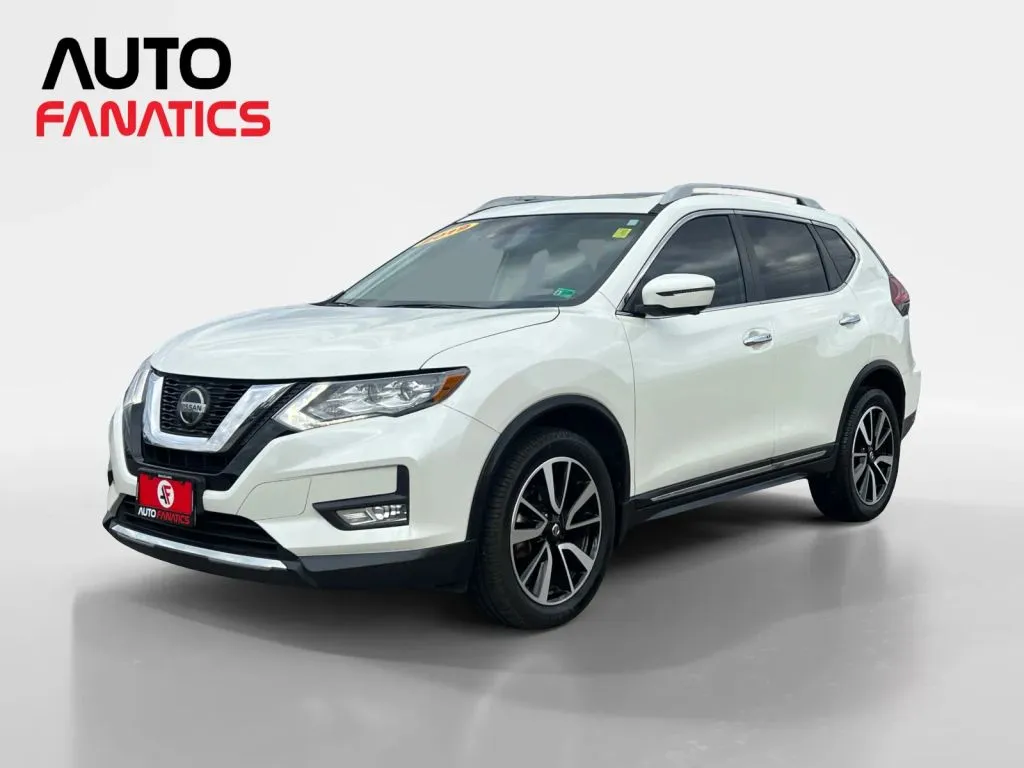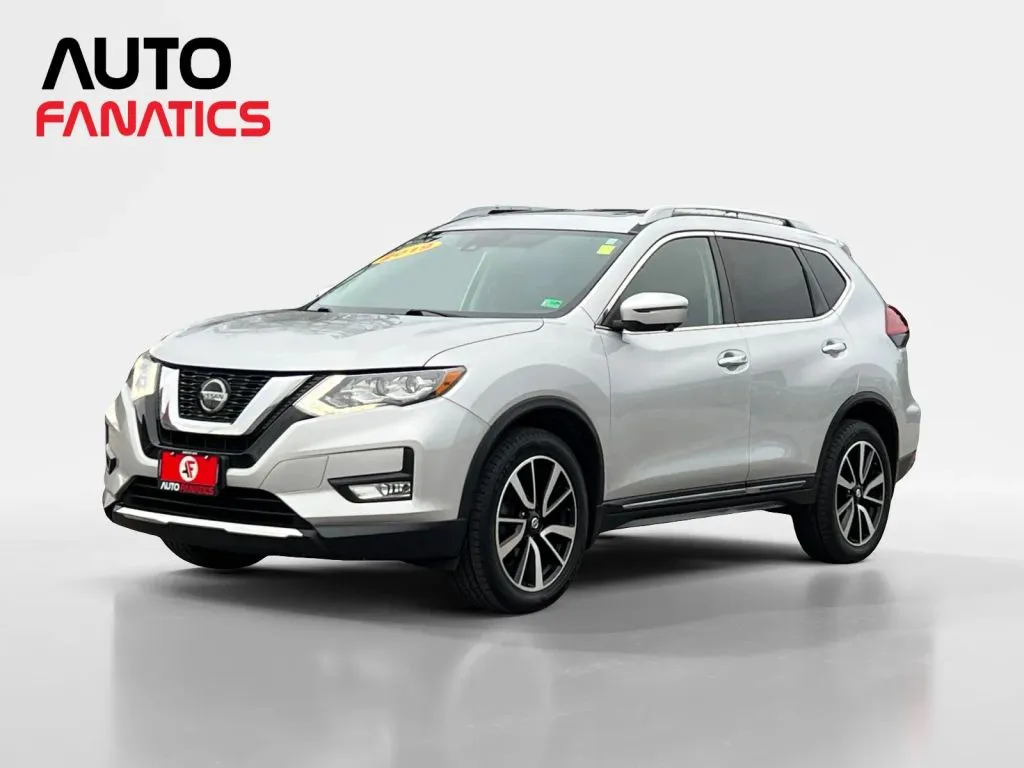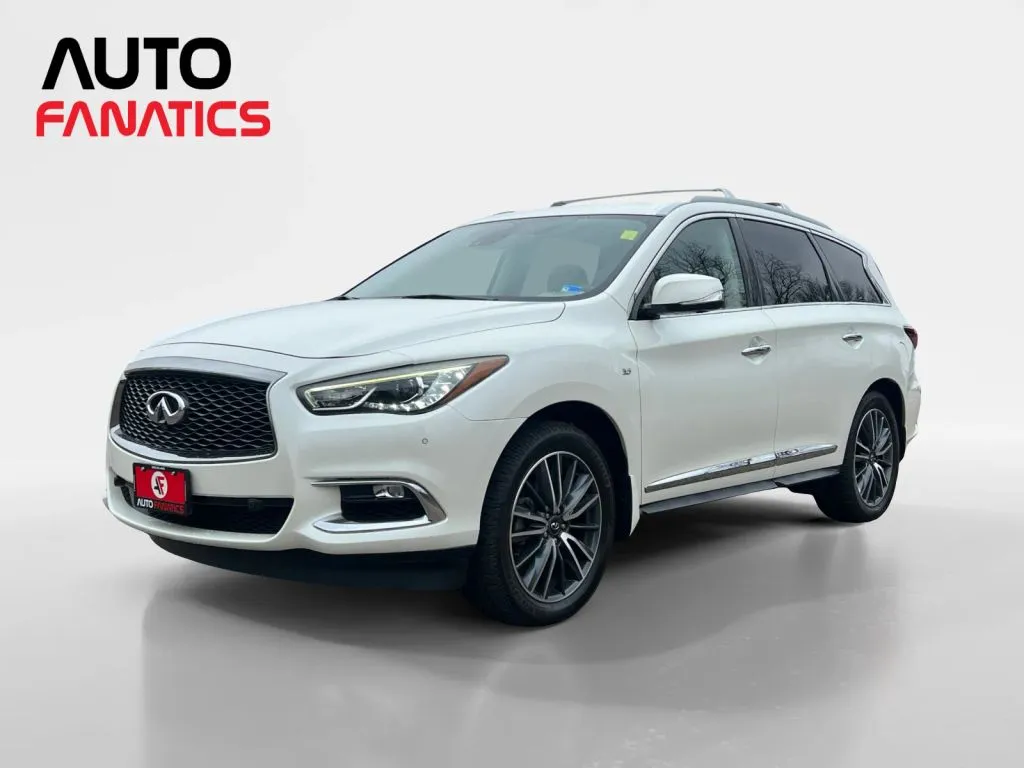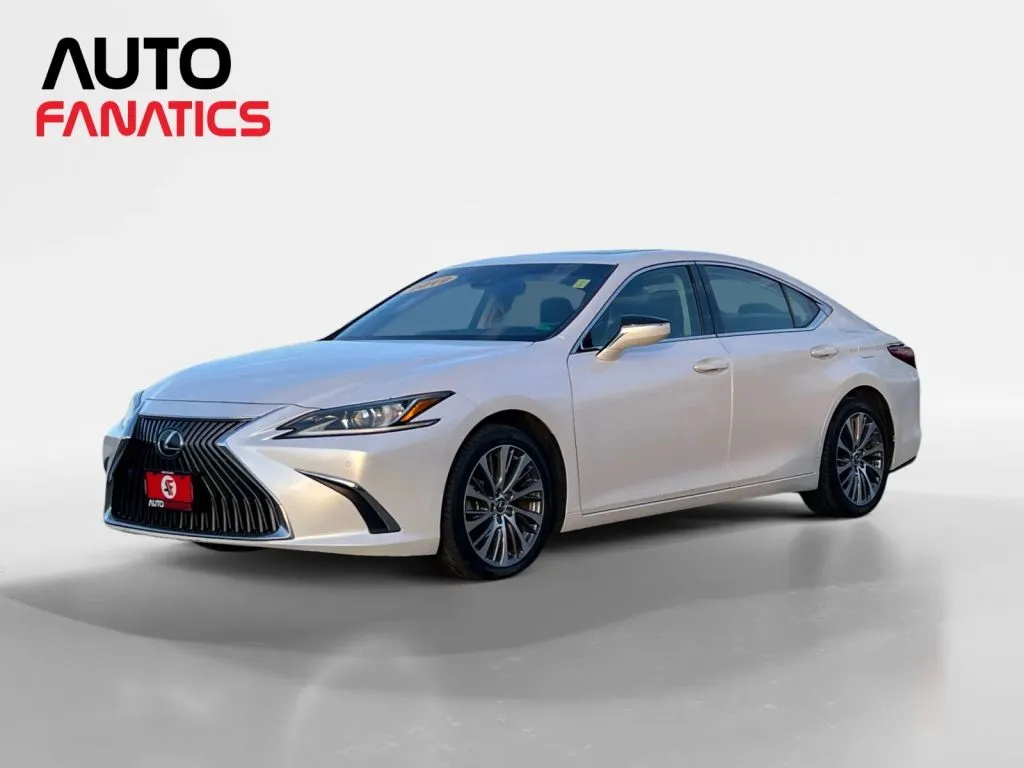How to Get Approved for a Car Loan: The Ultimate Guide
Table of Contents
How to Get Approved for a Car Loan: The Ultimate Guide
You’ve found the perfect SUV for your family or a reliable truck for work, and now comes the big question: financing. For many, this is the most stressful part of the car-buying journey. My goal here is to take that stress away by giving you the inside scoop on what lenders really want to see. When you understand their criteria, you’re no longer just a passive applicant; you’re a prepared buyer who can approach the process with confidence. This guide breaks down everything you need to know about how to get approved for a car loan, putting you in a position of strength. We'll cover the essential steps to prepare your finances, so you can focus on the fun part - choosing your next vehicle from our inventory.
Key Takeaways
- Do your financial homework first: Taking time to check your credit, gather your documents, and understand your budget before you shop makes the loan process smoother and gives you more power when you negotiate.
- Your interest rate isn't set in stone: You can directly influence your rate by improving your credit, making a larger down payment, and comparing offers from multiple lenders. Always ask if a lender can give you a better deal.
- Know the difference between prequalification and preapproval: Use prequalification as a no-risk way to set your budget. Then, get preapproved when you're ready to buy to lock in a real offer and shop with the confidence of a cash buyer.
What Lenders Look For in a Car Loan Application
When you apply for a car loan, lenders are essentially trying to answer one big question: How likely are you to pay the loan back on time? To figure this out, they look at a few key pieces of your financial picture. Think of it like putting together a puzzle—they need to see how your credit, income, and existing debts fit together to feel confident in lending you the money. Understanding what they’re looking for ahead of time puts you in a much stronger position. It takes the mystery out of the process and gives you a clear roadmap for what you need to have in order. From your credit score to the size of your down payment, each element plays a role in getting you that "approved" stamp.
Your Credit Score's Role
Your credit score is one of the first things a lender will look at, and for good reason. It’s a three-digit number that acts as a quick summary of your history as a borrower. A higher score tells lenders that you have a track record of managing debt responsibly, which makes you a lower-risk applicant. As Experian notes, your credit score is a big deal because it affects not only if you get approved but also what interest rate you'll pay. A better score can mean a lower interest rate, which saves you money over the life of the loan. Don’t worry if your score isn’t perfect; knowing where you stand is the first step toward building a stronger application.
Why Your Income and Job History Matter
Beyond your credit history, lenders want to see that you have a stable and sufficient income to handle a monthly car payment. They need to be sure you can afford the loan without stretching your budget too thin. Lenders will review your income and employment history to confirm you have a steady paycheck coming in. A consistent job history shows them that you’re a reliable candidate who is likely to continue making payments. This isn’t just about how much you earn, but also the stability of that income. Having proof of steady employment gives the lender confidence that you’ll be able to manage your loan payments for the entire term.
What Is a Debt-to-Income Ratio?
Your debt-to-income ratio, or DTI, is another key metric lenders use. It sounds complicated, but it’s just the percentage of your gross monthly income that goes toward paying your monthly debts (like rent, credit card payments, and other loans). Lenders look at your DTI to gauge how much of your budget is already spoken for. According to Experian, lenders generally prefer a DTI ratio below 50%. A lower DTI shows that you have enough room in your budget to comfortably take on a new car payment, making you a more attractive applicant in their eyes.
The Power of a Down Payment
A down payment is the cash you pay upfront when you buy a car, and it’s one of the most powerful tools you have as a buyer. Putting money down reduces the total amount you need to borrow, which immediately lowers your monthly payment. It also shows the lender that you’re financially invested in the purchase from day one, which reduces their risk. A larger down payment can often help you secure a lower interest rate and may even help you get approved if your credit is less than perfect. You can use a car loan calculator to see exactly how different down payment amounts can impact your monthly payments and the total interest you’ll pay.
How Your Choice of Car Factors In
The specific car you want to buy also plays a role in your loan application. The vehicle itself serves as collateral for the loan, meaning if you stop making payments, the lender can repossess it. Because of this, lenders consider the car's age, mileage, and overall value. Some may have restrictions on financing older or high-mileage vehicles. The price of the car determines the size of the loan you need, so choosing a vehicle that fits comfortably within your budget is key. As the Consumer Financial Protection Bureau points out, negotiating the price of the car can save you a lot of money and result in a smaller, more manageable loan. Finding the right car in our wide selection of vehicles is the perfect place to start.
How to Prepare Your Finances for a Loan
Getting your finances in order before you apply for a car loan is one of the smartest moves you can make. It’s like tidying up your house before guests arrive—it just makes everything go more smoothly. Taking a little time to prepare can make a huge difference in your approval odds and the interest rate you’re offered. It puts you in a position of strength and confidence when you walk into the dealership.
Think of it as a simple, four-step process: understanding your credit, making a few key improvements, gathering your paperwork, and getting a clear picture of your current debt. By tackling these steps, you’re not just preparing for a loan; you’re setting yourself up for financial success. Let’s walk through exactly what you need to do to get ready.
Check and Understand Your Credit Report
Your credit score is one of the first things a lender looks at. It’s a quick snapshot of your financial health and history, and it plays a huge role in whether you get approved and the interest rate you'll pay. Before you even start looking at cars, you should check your credit report. You are entitled to a free report from each of the major credit bureaus every year. Look over it carefully to understand where you stand. Are there any surprises or errors? Knowing your score gives you a baseline and helps you manage expectations for the loan process.
Simple Ways to Improve Your Credit Score
If your credit score isn't quite where you want it to be, don't worry. There are several straightforward ways to give it a little lift before you apply for a loan. Start by paying down existing debts, especially high-balance credit cards. Making consistent, on-time payments is also crucial, as payment history is a major factor in your score. Take a close look at your credit report and dispute any errors you find—mistakes happen, and fixing them can make a real difference. Finally, try to avoid opening any new credit accounts right before you apply for a car loan, as this can temporarily lower your score.
Gather Your Financial Paperwork
When you apply for a loan, lenders need to verify who you are and that you can afford the payments. Having all your documents ready ahead of time makes the process much faster and less stressful. Lenders will typically ask for proof of identity (like a driver's license), proof of income (pay stubs or tax returns), and proof of residency (a utility bill). It’s also a good idea to have recent bank statements on hand. By gathering this paperwork now, you’ll be ready to move forward quickly when you find the perfect car and are ready to get approved.
Get a Handle on Your Existing Debt
Lenders will look at your debt-to-income (DTI) ratio, which is the percentage of your monthly gross income that goes toward paying your monthly debts. It helps them see if you can comfortably take on a new car payment. A lower DTI is always better, and many lenders prefer to see it below 50%. You can calculate your DTI by adding up all your monthly debt payments and dividing them by your gross monthly income. If your DTI is a bit high, see if you can pay down any small loans or credit card balances before you apply. Our car loan calculator can help you estimate a monthly payment to see how it fits into your budget.
The Documents You'll Need to Apply
Walking into a loan application with your documents in hand is a serious power move. It shows you’re prepared, serious, and ready to make a smart purchase. Gathering your paperwork ahead of time is one of the best things you can do to make the financing process smooth and stress-free. Think of it as creating a financial toolkit that will help you secure the best possible loan. Once you have these items ready, you can get approved online and get one step closer to driving your next car. Let’s walk through exactly what you’ll need.
Proof of Income and Employment
Lenders need to feel confident that you can handle monthly payments, and the best way to show them is with proof of a steady income. This is a standard request that helps them understand your financial situation. You’ll want to gather a few recent documents to verify your job and how much you earn. Typically, this includes your last two or three pay stubs, the last two years of W-2s, or your two most recent tax returns if you're self-employed. Having these ready will speed up the verification process significantly, so it’s worth taking a few minutes to find and organize them.
Personal Identification
This one is simple but essential. Lenders need to confirm your identity before extending a loan. It’s a crucial step for security and helps prevent fraud, protecting both you and the lender. For most people, a valid, government-issued photo ID is all that’s required. Your driver’s license is the most common and preferred form of identification, but a state-issued ID card will also work. Make sure your ID isn’t expired and that the address is current. It’s a small detail that can prevent unnecessary delays, so double-check it before you start your application.
Recent Bank Statements
Your bank statements provide a snapshot of your financial health. Lenders will typically ask for the last two or three months of statements to see your cash flow and spending habits. They’re looking for a stable history—consistent deposits from your employer and a positive balance. This isn’t about judging your spending; it’s about confirming you have the financial stability to comfortably take on a new car payment without stretching your budget too thin. It’s another piece of the puzzle that helps build a strong case for your loan approval.
Details About the Car You Want
The loan you’re applying for is tied directly to the vehicle you want to buy. Because the car acts as collateral for the loan, the lender needs to know all about it. Before you apply, you should have a specific vehicle in mind. Be prepared to provide the make, model, year, mileage, and the Vehicle Identification Number (VIN). This information allows the lender to assess the car's value and determine the appropriate loan amount. It’s the fun part of the prep work because it means you’re close to picking out your perfect ride from our wide selection of used cars.
Proof of Car Insurance
You can’t drive a car off the lot without it, and you can’t get a loan without it, either. Lenders require you to have car insurance before they will finalize a loan. This is non-negotiable because it protects their investment—and you—in case of an accident, theft, or damage. You don’t need the policy to be active just to apply, but you will need to provide proof of insurance before you can sign the final paperwork and take possession of the car. It’s a good idea to start shopping for quotes as you narrow down your vehicle choice so you’re ready to go.
Prequalification vs. Preapproval: What's the Difference?
When you start exploring car loans, you’ll hear the terms “prequalification” and “preapproval” used a lot. They might sound interchangeable, but they represent two very different stages of the financing process. Understanding the distinction is key to shopping for your next car with confidence and a clear budget in mind. Think of it as the difference between getting a rough estimate and receiving a firm offer. Knowing when to use each tool can protect your credit score and give you more negotiating power when you find the perfect vehicle. Let’s break down what each term means for you.
Prequalification: A Quick Financial Snapshot
Prequalification is your financial starting point. It’s a quick, informal assessment of how much you might be able to borrow based on information you provide about your income and debts. The best part? This process typically uses a “soft” credit inquiry, which means it
does notaffect your credit score. You can get prequalified with multiple lenders to get a ballpark idea of your budget without any negative impact. It’s a no-commitment way to see where you stand. For example, you canget pre-qualified with Capital Oneright on our site to get a better sense of your buying power before you even start browsing for cars.Preapproval: A More Thorough Review
Getting preapproved is the next step up and a much more formal process. For a preapproval, a lender will verify your financial information by asking for documents like pay stubs and bank statements. They will also perform a “hard” credit inquiry to get a detailed look at your credit history. In return, you get a conditional offer for a specific loan amount and interest rate, which is usually valid for 30 to 60 days. A preapproval letter shows sellers you’re a serious, qualified buyer, which can give you a significant advantage. When you're ready to take this step, you can get approved through our secure online application.
How Each Affects Your Credit Score
The main difference in how these two actions impact your credit lies in the type of inquiry a lender performs. Prequalification involves a soft inquiry, which is only visible to you and has no effect on your credit score. Preapproval, on the other hand, requires a hard inquiry. This type of check is visible to other lenders and can cause your score to dip by a few points temporarily. However, credit scoring models like FICO and VantageScore understand that people shop around for the best rates. Multiple hard inquiries for an auto loan made within a short window (typically 14 to 45 days) are usually treated as a single event to minimize the impact on your score.
How to Use These Tools to Shop Smarter
Start your journey with prequalification. It’s the perfect tool for setting a realistic budget for your search through our inventory of cars, trucks, and SUVs. Once you’ve narrowed down your choices and are serious about making a purchase, it’s time to seek preapproval. We recommend getting preapproved by a few different lenders, such as your personal bank, a local credit union, and through our dealership, to compare offers. Walking into a dealership with a preapproval letter in hand transforms you into a cash buyer in the seller's eyes. This allows you to focus on negotiating the vehicle's price, knowing your financing is already secured.
How to Get a Better Interest Rate
Let's talk about one of the most important numbers in your car loan: the interest rate. It might seem like something the lender decides on their own, but you actually have a lot of say in the matter. A lower rate can save you a surprising amount of money over time, freeing up your budget for other things. Think of it as your first big win in the car-buying process. By taking a few smart steps, you can put yourself in the driver's seat of your financing. You can even play with the numbers yourself using a car loan calculator to see the difference a percentage point or two can make. Here’s how you can work to get the best rate possible.
Improve Your Credit for a Lower Rate
Your credit score is one of the first things a lender looks at. It’s a snapshot of your financial reliability, and a higher score generally leads to a lower interest rate. If your score isn't where you'd like it to be, you can take steps to improve it before applying for a loan. Focus on making all your payments on time, paying down existing credit card balances, and avoiding opening new credit accounts right before you apply. You can check your credit report for free to see where you stand and identify any errors that might be holding you back. Even small improvements can have a big impact on your loan offers.
Make a Larger Down Payment
A larger down payment is a powerful tool for getting a better interest rate. When you put more money down upfront, you reduce the total amount you need to borrow. For a lender, a smaller loan is a less risky loan, and they often reward that with a more favorable interest rate. It also lowers your monthly payment and helps you build equity in your vehicle faster. If you have a car to trade in, its value can go directly toward your down payment. You can get a trade-in value online to see how much you could put toward your next car, potentially saving you a lot in interest.
Shop Around for the Best Offer
You wouldn't buy a car without comparing a few options, and the same principle applies to your auto loan. Don't feel obligated to accept the first offer you receive. Getting quotes from different lenders—like your personal bank, a local credit union, and the dealership—gives you the power to compare and choose the best deal. At Auto Fanatics, we make it easy to see where you stand. You can get pre-qualified with Capital One right on our website without impacting your credit score. This gives you a real rate you can use to compare against other offers, ensuring you find a loan that truly fits your budget.
Don't Be Afraid to Negotiate
Once you have a few loan offers in hand, you have leverage. Negotiation isn't about being confrontational; it's about having an informed conversation to get the best possible terms. You can simply ask the lender, "Is this the best rate you can offer me?" Sometimes, showing them a better offer you received from another institution is all it takes for them to match it or provide an even lower rate. According to the Consumer Financial Protection Bureau, negotiating your interest rate is a smart move that can lead to significant savings. Remember, you are the customer, and it's perfectly acceptable to advocate for yourself.
Should You Add a Cosigner?
If you have a limited credit history or a score that's on the lower side, adding a cosigner to your loan application can be a game-changer. A cosigner—typically a family member or close friend with a strong credit profile—agrees to take responsibility for the loan if you're unable to make payments. Their good credit history reduces the lender's risk, which can help you get approved and secure a much lower interest rate than you would on your own. It's a serious commitment for your cosigner, so be sure to have an open conversation about the responsibilities involved. If this sounds like the right path for you, you can get approved with a cosigner through our simple online application.
Where to Get Your Car Loan
Once you’ve prepped your finances, it’s time to decide where you’ll actually get your loan. You have more options than you might think, and shopping around for a loan is just as important as shopping for your car. The goal is to find a lender who offers you a competitive interest rate and terms that fit comfortably within your budget. Each option has its own set of pros and cons, so understanding them will help you make a confident choice. Let's break down your main options so you can figure out which path is the right one for you.
Banks vs. Credit Unions
Your local bank or credit union is a traditional and often reliable place to start your search for a car loan. If you already have a checking or savings account with a bank, you may be able to get a loyalty discount on your interest rate. Banks are convenient and widely accessible. On the other hand, credit unions are non-profit organizations owned by their members, which often allows them to offer lower interest rates and more flexible terms than traditional banks. The main catch is that you have to become a member to get a loan, but the requirements are often simple and can sometimes be completed during the application process itself.
Financing Through the Dealership
For many people, financing directly through the dealership is the most convenient option. It’s a one-stop-shop experience where you can find your car and secure your loan all in the same place. Dealerships work with a network of lenders, which means they can shop around on your behalf to find competitive offers. Here at Auto Fanatics, we pride ourselves on a transparent, no-pressure process. We partner with trusted institutions like Capital One to help you get pre-qualified quickly, so you know exactly what you can afford before you even start browsing our inventory. Our goal is to find a financing solution that works for you, not just for us.
Working with Online Lenders
Online lenders have become a popular choice for car loans, offering a modern and flexible way to get financed. The biggest advantage is the ability to apply from the comfort of your home and often receive a decision within minutes. Many online platforms allow you to compare offers from several different lenders at once, which makes it easy to see who can give you the best deal. This process puts the power in your hands, letting you review rates and terms without the pressure of an in-person meeting. An online application can be a great way to get a preapproved loan offer that you can take with you to the dealership.
Finding a Loan That Fits Your Credit Profile
Ultimately, the best place to get a loan depends on your unique financial situation. Lenders across the board—whether it’s a bank, a dealership, or an online platform—will look closely at your credit profile. A strong credit history, a record of on-time payments, and a healthy debt-to-income ratio are key factors that signal to lenders that you’re a reliable borrower. If you have excellent credit, you’ll likely have your pick of great offers. But even if your credit isn’t perfect, there are still plenty of options available. Understanding how to get a car loan that aligns with your profile is the first step toward getting behind the wheel.
The Final Steps: From Application to Approval
You’ve done the prep work, and now you’re in the home stretch. Getting from a loan application to holding the keys to your next car involves a few final, important steps. This is where you’ll review your offers, understand the details, and finalize the deal. Let’s walk through what to expect so you can feel confident as you cross the finish line.
How to Compare Your Loan Offers
Once you have a few loan offers, it’s time to compare them. Look beyond just the monthly payment. The key numbers to focus on are the Annual Percentage Rate (APR), the loan term (how many months you'll be paying), and the total cost of the loan. A lower APR means you pay less in interest over time. A shorter term means higher monthly payments but less interest paid overall. Use a car loan calculator to see how different terms affect your total cost. Remember, these offers are often negotiable. The Consumer Financial Protection Bureau notes that negotiating terms like the interest rate can save you a significant amount of money, so don't hesitate to ask for a better deal.
Read the Fine Print: Understanding Loan Terms
The loan agreement is a legal contract, so it’s crucial to understand every detail before you sign. Are there any prepayment penalties if you decide to pay the loan off early? What are the fees for late payments? Sometimes, loans come with optional add-ons, like extended warranties or GAP insurance. At Auto Fanatics, we offer straightforward protection plans and are happy to explain the benefits without any pressure. Always ask the lender or dealer if the terms they've presented are their best offer. A simple question can lead to better rates and a more favorable agreement for you.
Finalize Your Application
After you’ve chosen the best loan offer, you’ll move on to the formal application. This is where the lender does a deep dive into your finances to confirm you can handle the loan. They will perform a hard credit inquiry and verify your income, employment, and other details you provided during pre-qualification. Make sure you have all your documents ready to go to keep the process moving smoothly. When you’re ready to take this step with us, you can fill out our secure form to get approved and get one step closer to your new vehicle.
You're Approved! What's Next?
Congratulations! Hearing you’re approved is a great feeling. The lender will send you the final loan documents to sign. You’ll also need to provide a few last items, such as a copy of your driver’s license, recent pay stubs, and proof of insurance for your new car. Once the lender has everything they need and the paperwork is signed, they will release the funds to the dealership. Then comes the best part: getting the keys and driving away in your fantastic new-to-you car. Your perfect ride is waiting for you in our extensive inventory of high-quality cars, trucks, and SUVs.
Related Articles
- Used car loan calculator | Auto Fanatics Fredericksburg, VA
- Auto financing for used cars, trucks, & SUVs | Auto Fanatics
- Prequalify with Capital One | Auto Fanatics VA
- Get your credit score | Auto Fanatics in Fredericksburg, VA
- Top 5 Used Car Buying Tips in Fredericksburg, VA | Auto Fanatics
Frequently Asked Questions
What credit score do I actually need to get a car loan?There isn't a single magic number that guarantees approval. While a higher score certainly helps you get better interest rates, lenders look at your entire financial profile. They consider your income, your job stability, and your existing debt. We work with many people across the credit spectrum. The best first step is to understand where you stand and then focus on presenting a strong application overall, which includes things like a steady income and a reasonable down payment.Will exploring my financing options hurt my credit score?This is a great question, and the answer depends on the step you're taking. Getting pre-qualified, which gives you a good estimate of what you can afford, typically only requires a soft credit inquiry. This does not affect your score at all, so you can do it without worry. When you formally apply for a loan and seek preapproval, the lender will perform a hard inquiry, which can cause a small, temporary dip in your score. The good news is that credit bureaus understand people shop for rates, so multiple auto loan inquiries within a short period are usually treated as a single event.How does trading in my current car fit into the loan process?Your trade-in is a fantastic tool. The value of your current car acts as a credit that is applied directly to the price of your next one. Think of it as a big chunk of your down payment that you don't have to pull from your bank account. This reduces the total amount you need to finance, which in turn lowers your monthly payment and can help you secure a better interest rate because the loan is smaller and less risky for the lender.Can I still get a loan if I'm self-employed or have an irregular income?Yes, absolutely. Lenders understand that not everyone gets a traditional W-2. If you're self-employed or have a non-traditional income stream, the key is to clearly demonstrate your financial stability. You'll want to have documents like your last two years of tax returns and several months of bank statements ready. This paperwork helps show a consistent history of earnings, giving the lender the confidence they need to approve your loan.How much should I really put down for a down payment?While there's no strict rule, a common guideline is to aim for a down payment of around 20% of the car's purchase price. Putting down a substantial amount shows the lender you're financially committed and reduces their risk, which can lead to a better interest rate. More importantly, it lowers your monthly payments and helps you build equity faster, preventing a situation where you owe more on the loan than the car is worth. The best approach is to put down as much as you comfortably can without draining your savings.
Author(s)

Ray Mehta
CEO AND FOUNDERRay Mehta is the CEO and Founder of Auto Fanatics, a leading independent dealership in Fredericksburg, Virginia. With over 15 years of experience spanning franchise and independent dealerships, Ray has guided management teams that have sold 50,000+ vehicles, giving him deep expertise in automotive retail, financing, and customer experience.
Widely regarded as a subject matter expert in dealership operations and digital retailing, Ray frequently shares insights through blogs and thought leadership articles, where he explores industry trends, credit challenges, and the future of car buying.
At Auto Fanatics, his vision is to create a transparent, customer-first car buying experience, blending technology with trust to redefine how people purchase vehicles.

JOHN TAHHAN
GENERAL MANAGERJohn Tahhan is the General Manager of Auto Fanatics, responsible for overseeing daily operations and ensuring every customer enjoys a smooth, transparent car-buying experience. With more than a decade of automotive retail experience, John has honed his skills in sales management, financing programs, and inventory strategy, helping Auto Fanatics grow while maintaining its customer-first values.
Known for his hands-on leadership style, John works closely with his team to create processes that drive efficiency and long-term satisfaction. His approachable personality and focus on integrity have made him a trusted leader among staff and customers alike.
Outside the dealership, John enjoys riding bikes, a passion that reflects his energy, focus, and love for the open road.










